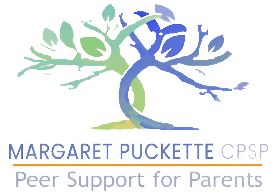An article in the local paper told the story of a mother who desperately tried to get help for her at-risk son to keep him out of a gang. Yet he became a victim of a drive-by shooting and was in intensive care for days, but he lived. In the article, she said something I’m very familiar with; she said other parents never told her what they suspected, nor did anyone let her know if her son was at their house when he ran away. Just knowing her son’s whereabouts could have helped her intercept dangerous activities. Like her, I never got information from other parents who might have been (or should have been) concerned about my troubled child. Why didn’t other parents stay in touch and help each other control their children?
At-risk kids hang out together, they know each other’s stories (true or not), and protect each other, and parents are out of the loop. What if parents got together too, shared stories, and supported each other’s goal of protecting their child from making mistakes? Kids’ unsafe plans and activities are no match for the many eyes and ears (and cleverness and wisdom) of all their parents combined.
How to track at-risk kids and join forces with other parents:
Go on the internet, check out Facebook and other social media, and look for your child’s page and the pages of his or her friends. The police do this all the time; it’s one of their main investigative tools! At-risk children share everything over the internet: photos, favorite places and people, favorite activities (even illegal ones), and other incriminating information. It’s easy to identify kids who are at-risk.
Contact the parents or caregivers of your child’s friends, by phone or email anytime you find out that their child or teen was with your own child while doing unsafe activities.
I did this. Some parents were thrilled to find support, but a couple were angry with me at first. After all, I was delivering bad news. They defended their child, or accused my child of telling stories. I just said, “I thought you’d want to know. My kid is in trouble, but you may want to know your child was also involved.” It took some backbone to stay online, but they eventually calmed down and expressed disappointment in their child. They often hadn’t suspected anything. Then I asked if we could join-up and inform on each other’s kids to keep them safe. Always, I received a strong yes.
Compare notes and share news about friends, friends of friends, which houses were dangerous (e.g. adult not at home, or adult provides drugs or alcohol), which places they hang out, and who might victimize them or be victimized by them.
Call a teacher and ask who your child hangs out with at school, or if they know another parent who is worried about their kid, call that parent and make a pact to keep each other informed. Whether they help you or not, at least they know someone’s watching and paying attention.
True story – One mother I know recruited a “spy network” with her son’s friends’ parents and with employees of businesses he regularly frequented, such as a skateboard shop near his school and a coffee house. She was able to keep track of where he was if he ignored her curfews, and inform the community police of adult associates (usually 18-24) who were known to provide drugs, alcohol, and cigarettes to youth. Her information helped empower other parents who hadn’t known what to do, but were then able to restrict their teen’s activities away from home and make it uncomfortable for unsafe people to associate with them.
True story – A father I met took the “spy network” idea a step further and had contact cards, like business cards, which he gave away to police, teachers, other parents, and anyone he met who knew his daughter. The contact cards basically said “Please help us keep Kari safe and call us, her parents, anytime she is at the following places [ … ] or doing something you believe is inappropriate. Thank you very much for your help. We will keep your calls confidential from our daughter.” Then the card gave the parents’ names, number, and email address. This greatly limited their daughter’s contact with unsafe or inappropriate friends and adults, because they knew they might be watched and reported if she was around. Surprisingly, this attention improved the girl’s progress in family therapy, as she stated she felt more like her parents cared.
Word gets out quickly among the groups of at-risk kids and the adults who enable them. If you let enough people know that they may be watched when at-risk kids are around, then they will avoid these kids and even ask them to leave their company. Don’t forget: you are smarter and more experienced than young people. You, as a parent, are not alone with your concerns about your child.
Reach out to the other parents in your community. You will be surprised how many will thank you.
–Margaret

One Comment